HELP SUPPORT THE WIND REPERTORY PROJECT!

Dramatic Essay

Clifton Williams
General Info
Year: 1958 Duration: c. 6:00 Difficulty: IV (see Ratings for explanation) Publisher: Masters Music Cost: Score and Parts - $65.00 | Score Only - $7.00
Instrumentation
Full Score B-flat Solo Trumpet C Piccolo Flute I-II Oboe I-II English Horn Bassoon I-II E-flat Soprano Clarinet B-flat Soprano Clarinet I-II-III E-flat Alto Clarinet B-flat Bass Clarinet B-flat Contrabass Clarinet E-flat Alto Saxophone I-II B-flat Tenor Saxophone E-flat Baritone Saxophone B-flat Cornet I-II-III Horn in F I-II-III-IV Trombone I-II-III Euphonium Tuba Timpani Percussion, including:
- Crash Cymbals
None discovered thus far.
Program Notes
Throughout his professional career, Williams was in great demand for clinics and guest conducting appearances. He received numerous honors and awards, and his publishers were always eager for more band works. With an abundance of organizations and corporations commissioning works from him, the years beginning in 1958 were some of the busiest and most productive in his career. Three major instrument manufacturers, the Conn Corporation, the Ludwig Drum Manufacturing Company, and the Artley Corporation commissioned works for solo instrument(s) and band.
Dramatic Essay, a dramatic dialogue between the trumpet soloist and band, was composed on commission by the educational services department of the C.G. Conn Corporation and written especially for Don Jacoby, their clinician and trumpet soloist. Don "Jake" Jacoby was a noted recording artist, trumpet teacher, bandleader and author who played with Benny Goodman, Les Brown, and did session work for CBS and NBC. Jacoby spent much of his life teaching and giving clinics for the Conn Corporation. He recorded Dramatic Essay for Conn under the album title Have Conns Will Travel.
In Robert Cranston Cameron’s 1974 treatise, The Band Music of Clifton Williams, written while he was a student at the University of Miami, he quotes the composer: “ Dramatic Essay was the first serious piece for solo trumpet and band. The entire scope of trumpet technique is contained in Dramatic Essay; this includes single and multiple tonguing, rapid slurs, good range, endurance, phrasing, and a wide range of dynamics.”
In a 2012 statement, Cameron concurs with Williams’ synopsis and adds: “All previous such works had been composed for cornet and band. At the time of its conception, the entire scope of trumpet technique was incorporated in Dramatic Essay , including both single and multiple tonguing, rapid intervallic slurs, upper register acrobatics, demanding endurance requirements, long expressive phrasing, and a wide range of dynamics.”
- Program Note from liner notes of The Music and Art of J. Clifton Williams CD
- Audio CD: Roundtree Wind Symphony (Barry Ellis, conductor) - 2014
State Ratings
Performances.
To submit a performance please join The Wind Repertory Project
- University of Illinois (Champaign) Campus Band (Isaac Brinberg, conductor; Luke Yoakam, trumpet) - 29 April 2023
- Tennessee Wind Symphony (Knoxville) (John M. Culvahouse, conductor) - 19 April 2023 (64th Annual Tennessee Music Education Conference, Nashville)
- Strongville (Ohio) Community Band (Ken Mahelko, conductor; Jack Brndiar, trumpet) - 12 August 2022
- University of Arizona (Tucson) Wind Symphony (Chad Shoopman, conductor; Jason Carder, trumpet) – 27 November 2018
- University of Kentucky (Lexington) Symphony Band (George R. Boulden, conductor;Vincent DiMartino) – 18 November 2018
- California State University, Fresno, Wind Orchestra (Gary P. Gilroy, conductor; Jennifer Broussard, trumpet) - 22 April 2015
- Austin (Tex.) Community Band (Richard Floyd, conductor; Wiff Rudd, trumpet) - 22 February 2013
- North Hardin High School (Radcliff, Ky.) Symphonic Band (Craig S. Cornish, conductor; Vince DiMartino, trumpet) – 22 December 1988 (1988 Midwest Clinic)
Works for Winds by This Composer
Adaptable Music
- Variation Overture (Flex instrumentation) (arr. Barber) (1962/2021)
All Wind Works
- Academic Procession (1961)
- Air Force Band of the West March (1965)
- Anitra's Tanz (as arranger) (1875/1965)
- Arioso (1958)
- Caccia and Chorale (1976)
- Castle Gap (1964)
- Concertino (1960)
- Dedicatory Overture (1964)
- Dramatic Essay (1958)
- Fanfare and Allegro (1956)
- Festival (1962)
- The Hermitage (1976)
- Hill Country Ballad (1953)
- Killian March (1968)
- Laredo (1964)
- March Lamar (1966)
- Pandéan Fable (1970)
- Pastorale (1957)
- The Patriots (1970)
- Postwar Prelude (1943/2012)
- The Ramparts (1967)
- The Sinfonians (1960)
- A Solemn Fugue (1958)
- Sonata Allegro (1949/2012)
- Songs of Heritage (1976/1999)
- Strategic Air Command (1964)
- Symphonic Dance No. 1, "Comanche Ritual" (tr. McBeth) (1965/2013)
- Symphonic Dance No. 2, "The Maskers" (1964/1968)
- Symphonic Dance No. 3, "Fiesta" (1964/1967)
- Symphonic Dance No. 4, "Square Dance"
- Symphonic Dance No. 5, "New Generation" (1965/2013)
- Symphonic Essays (1963/2013)
- Symphonic Suite (1957)
- Variation Overture (1962)
- Smith, Norman E. (2002). Program Notes for Band. Chicago: GIA Publications, pp. 646.
- Williams, C. (1958). Dramatic Essay for Bb Trumpet and Band [score]. Summy-Birchard: [Evanston, Ill.]
- The Music and Art of J. Clifton Williams. Mark Records, 8514-MCD, 2014.
- Compositions
- Solo Trumpet

- Table Of Contents View
- Your cart is currently empty.
Clifton Williams - Dramatic Essay
For Trumpet and Band (Wind Ensemble)
Biographical Info
James Clifton Williams Jr. (1923– 12 February 1976) was born in Traskwood, Arkansas. He began playing French horn, piano, and mellophone early on and played in the band at Little Rock High School. In his senior class of 600, he was voted for being the most outstanding in artistry, talent, and versatility.
As a professional horn player he would go on to perform with the San Antonio and New Orleans Symphony Orchestras. Williams also served in the Army Air Corps band as a drum major, composing in his spare time.
He attended Louisiana State University (B.M., 1947) where he was a pupil of Helen Gunderson and the Eastman School of Music (M.M., 1949) where he studied with Bernard Rogers and Howard Hanson.
In 1949 Williams joined the composition department at the University of Texas School of Music. He taught there until he was appointed Chair of the Theory and Composition Department at University of Miami in 1966. Williams retained this position until his death in 1976. His composition students included W. Francis McBeth, Lawrence Weiner and John Barnes Chance.
Suggested Equipment
Bb trumpet is suggested by the composer. For the recording included here, I used an Eclipse C trumpet. However, I have performed it a couple times since the recording and used my Bach Artisan Eb trumpet.
This is the recording I made with the Rountree Wind Ensemble for the album “The Music of Clifton Williams” on Mark Records.
Practice/Performance Tips
The piece works fine on Bb, C and Eb trumpets. The most difficult part of the work is deciding which horn to use! I like the opening fanfare on C. I like the lyrical first melody on Bb, and I like the double tonging stuff on Eb. Depending on where this falls in your program, endurance may be an issue toward the end. In that case, I would favor the smaller horn.
There is a lot of room for rubato throughout the lyrical sections. I think it can get a little overdone and sound sappy if not careful. I prefer to have the band basically play “straight” and let me do the rubato around them, rather than have the whole group work out the subtle nuance that could quickly turn to honey if too much is applied.
Suggested Recordings
Mike Vax, Don Jacoby, David Cooper
- Dramatic Essay
Also available in digital
Instruments
Published by.
INTERNATIONAL RIGHTS SECURED. NOT FOR BROADCAST TRANSMISSION. ALL RIGHTS RESERVED. DO NOT DUPLICATE. NOT FOR RENTAL.
Alfred Publishing Co., Inc.
WARNING: All files (including corresponding notation and audio recordings) are protected by United States and international copyright laws. User hereby agrees that User will not reproduce, distribute, publicly perform, synchronize with videotape or film, print in the form of standard music notation or sheet music, or transmit any file(s) without the express written permission of MakeMusic, Inc. and other copyright owner(s). Such reproduction, distribution, public performance, synchronizing, printing or transmitting any file(s) without such written consent will violate your license agreement and may constitute User’s violation of both United States and international copyright law. Your use of MakeMusic Cloud is subject to the MakeMusic Cloud Application Agreement and the Subscriber Agreement.

Dramatic Opening Sentences: 25+ Examples and Ideas
by Michael Lydon

It is a truth universally acknowledged, that a single man in possession of a good fortune, must be in want of a wife. –Jane Austen, Pride and Prejudice
“Tom!” No Answer “Tom!” No Answer. ‘ “What’s Gone with that boy, I wonder. You TOM! No answer. –Mark Twain, The Adventures of Tom Sawyer
It was the best of times, it was the worst of times…. –Charles Dickens, A Tale of Two Cities
In a hole in the ground there lived a hobbit. –J.R.R. Tolkien, The Hobbit
Writing dramatic opening sentences, I’ve learned from long experience, can be tough.
Writing an opening sentence about writing an opening sentence can be tougher still, and it’s next to impossible to write an opening sentence about writing an opening sentence about writing an opening sentence! Help!
There glows the computer screen, blank and courteously bland, awaiting your command.
You could start with a close up:
Betty stared at her scratchy fingernails; she should have trimmed them before the interview.
—or with a long distant shot:
The prairie stretched out over endless miles of grassy emptiness.
Why not try a snatch of dialogue?:
“No, I’m not going out with you tonight, tomorrow, never in a million years!”
—or a private thought:
John shook his head in disbelief—she just doesn’t get it, not a bit of it.
Reporters often put opening sentences, which they call “ledes,” in one of two categories: first, the who-what-where-when-why lede that gets all the basic info into the opening sentence:
At last night’s Parks Department board meeting, Joe Smith, the department chairman for twenty years, angrily announced his retirement this September.
—and second, using a literary device (such as this rhetorical example below) to transform a standard lede into something more lively:
Joe Smith? Retire? You’re kidding me! Nobody knows our parks like Joe Smith knows our parks. But alas, it’s true. He’ll be gone in a month.
But whether you are a reporter, a novelist or a biographer—the primary goal of a first sentence remains the same: to get the reader to read the second sentence! And then the third, fourth, fifth one after that, and on into the body of the book.
Think of your opening sentence as a fish hook: whatever will get the glistening trout flip-flopping in your canoe, that’s the one to use.
Yet there’s no hard and fast rule that declares that this opening sentence works and that one doesn’t.
Brevity is generally a good rule of thumb, but to open my big biography of Ray Charles I used a rather long sentence:
For a hundred miles west of the Atlantic coast, the land of northern Florida lies flat as a floor covered by a thick rug of gray-green vegetation
—because I knew I was beginning a long book and wanted readers to accept my marathoner’s pace.
Like a friendly smile or a pat on the back, a good opening sentence is touched with warm, soul-to-soul magic.
What works for one writer or for one book may not work for another.
From the many superb opening sentences that you Write-the-Worlders submitted, here are a few that hooked me, though I’d find it hard to say why.
What was the point of continuing the fight? Would it even make a point? –Thelonelypizzaroll (Australia)
The young girl sat with an expression of someone who had seen more than anyone should see. –TheLittleElephant23 (United States)
Darkness is bewitching and full of enchanting possibilities, when you have only yourself for company,” the girl scribbled into her diary… –Piku (India)
I never expected such a wild side of somebody so plain to even exist. Her mousy-brown hair and eyes, paired with the short frame and glasses had always led me to believe that nothing even remotely interesting could be associated with a girl so…boring. –gabriellew (Australia)
It’s just short of a well known fact that every child hates going back to school, but adults still swear it’s good for us and wake us by whatever means necessary to get us there on time. –Abigail (United States)
The lights shut off two months ago, and the world was too afraid of the night to turn them back on. –aryelee (United States)
To tell this story, I must begin with my mother. –Kate Gardner
In the house by the meadow, there were a thousand open doors. –Kate Gardner
Why? Why, the only word that came to mind. The only word I could remember. Why me? Why was it that I was alone. I couldn’t fathom why it was me, not him, nor her but me. –Geysensei (Australia)
The day the sun took the moon’s place was the day the world went absolutely bonkers. –omicron7889 (Hong Kong)
If you think raining cats and dogs is just an expression then you definitely haven’t seen my life yet. –omicron7889 (Hong Kong)
“Why can’t you say something else?” he asked me, “Why are you always so negative?” –hk47isme (United States)
Hassan was a kind and loyal boy, but he created an uneasy tension everywhere he went. –Nicolas Baroja (Spain)
I eat dogs for breakfast, cats for lunch, snakes for dinner, and, sometimes, beetles for midnight snack. –Worriedwiredweirdo (Phillipines)
Why do I love these opening sentences? For many reasons that aren’t so easy to pin down.
A sharp insight into life and the human heart, for one thing.
A wicked sense of humor is another. Omicron7889’s “If you think raining cats and dogs is just an expression then you definitely haven’t seen my life yet” made me laugh out loud, and I’m sure I’ll use it soon in conversation.
Worriedwiredweirdo’s daily diet of dog, cat, snakes, and beetles got a hearty “Yu-u-u-k!” out of me just as, I figure, Worriedwiredweirdo hoped it would.
Kate Gardner’s “To tell this story, I must begin with my mother” instantly gives me the feel, “Oh, this is a book I can settle down to read on a rainy night by the fire. Abigail’s “It’s just short of a well known fact that every child hates going back to school” reminds me of Jane Austen’s famous “It is a truth universally acknowledged…”
All of these opening sentences awaken my curiosity: why did Hassan create tension when he seemed so kind and loyal? The sun took the moon’s place—when, how, why did that catastrophe happen? I’ve just got to know!
By waking my curiosity, each sentence connects me to the “what’s going to happen next?” energy of the narrative, and soon enough, by trying to answer Geysensei’s endless “whys,” I’m hooked, charging through the chapters to find out if the mysterious stranger with the crooked scar is my friend or a—eeeek!!!— deadly foe.
About Michael Lydon
Michael Lydon is a writer and musician who lives in New York City. Author of many books, among them Rock Folk , Boogie Lightning , Ray Charles: Man and Music, and Writing and Life . A founding editor of Rolling Stone, Lydon has written for many periodicals as well, the Atlantic Monthly, New York Times, and Village Voice. He is also a songwriter and playwright and, with Ellen Mandel, has composed an opera, Passion in Pigskin. A Yale graduate, Lydon is a member of ASCAP, AFofM local 802, and on the faculty of St. John’s University.

Share this post:
Similar Blogs

Q&A with Song Writing Competition Guest Judge Magou Samb
Singer-songwriter-musician Magou Samb credits his international music career to growing up in the...
Songwriting Competition 2019 Winners Announced
There are so many ways to write a great song. For R&B singer John Legend, the musical format of...

Film Review Tips with Matthew Gilbert
For years, Matthew Gilbert’s thoughtful critiques of books, movies and tv series have graced the...
- Literary Terms
When & How to Write Drama
- Definition & Examples
- When & How to Write Drama
How to Write Drama
- Start with characters . The best dramas are usually character- driven. They have a cast of main characters (usually fewer than 10), plus a handful of supporting characters. These characters should all be very distinct from one another, and the main characters should be authentic and life-like. This way, the audience can relate to them and cares what happens to them.
- Introduce conflict. All stories revolve around conflict, and this is especially true in drama. The conflict could be anything – the simplest example is political conflict or war, but you might also have competing love interests, clashes in personality, or simply a struggle against misfortune.
- Don’t forget about comic relief. Unless you’re writing a tragedy (see section 6), there should be at least some amount of humor in your drama. Otherwise, the negative emotions will get overwhelming and the experience will be too unpleasant for the reader. Give a few funny lines to your characters, or add an amusing situation somewhere to cut the tension – just make sure that this comic relief arises naturally from the story and it doesn’t feel like you’re cramming it in.
When to Use Drama
Drama is great for a creative writing project. It offers opportunities to work on character development, story structure, and a whole other set of writing skills. Every once in a while, you may also find a place for drama in formal essays , but you have to be careful.
For example, history essays are often more enjoyable to read if you craft them with a “dramatic” eye – focusing on a small set of main characters, contrasting these characters and their various desires, and fully describing the conflict at the center of the story. These techniques, in combination with good research and persuasive logic, can turn a good essay into a great one. However, you do have to be careful – too much drama in a formal essay can start to seem distracting, and you don’t want to give the impression that you’re more committed to the entertainment value than to the research and analysis.
List of Terms
- Alliteration
- Amplification
- Anachronism
- Anthropomorphism
- Antonomasia
- APA Citation
- Aposiopesis
- Autobiography
- Bildungsroman
- Characterization
- Circumlocution
- Cliffhanger
- Comic Relief
- Connotation
- Deus ex machina
- Deuteragonist
- Doppelganger
- Double Entendre
- Dramatic irony
- Equivocation
- Extended Metaphor
- Figures of Speech
- Flash-forward
- Foreshadowing
- Intertextuality
- Juxtaposition
- Literary Device
- Malapropism
- Onomatopoeia
- Parallelism
- Pathetic Fallacy
- Personification
- Point of View
- Polysyndeton
- Protagonist
- Red Herring
- Rhetorical Device
- Rhetorical Question
- Science Fiction
- Self-Fulfilling Prophecy
- Synesthesia
- Turning Point
- Understatement
- Urban Legend
- Verisimilitude
- Essay Guide
- Cite This Website
Dramatic Literature Essay Examples and Topics
Doctor faustus as a tragic hero essay.
- Words: 1468
Misery – Anton Chekhov. Analysis of Summary and Themes
The couter by salman rushdie, the relationship between eliezer and his father essay, guy de maupassant: “the necklace” essay, “the importance of being earnest” by oscar wilde: critical analysis, dorian gray and his downfall.
- Words: 2227
Is Beowulf an Ideal Hero and King? The Ideal in “Beowulf”
- Words: 1512
Defamiliarization in Literature: Examples
Character sketch of laura in “the glass menagerie” by tennessee williams, zora neale hurston & langston hughes: the dispute that ruined their relationship, deception role in “the odyssey” by homer.
- Words: 1255
Tragic Hero in Aristotle’s “Poetics”
- Words: 1711
Iago the Gardener`s Behavior in “Othello” by Shakespeare
- Words: 1372
Symbolic Imagery and Theme of Morality in The Tale of Kieu.
The peculiarities of discussing the theme of death in poetry and prose.
- Words: 1674
“Cathedral” by Raymond Carver
Tragedy and comedy as literary forms, leo tolstoy’s “the death of ivan ilyich”: characters analysis, william faulkner’s barn burning: sarty’s grown.
- Words: 1138
The Prince by Niccolo Machiavelli
Character of mathilde loisel in maupassant’s “the necklace”.
- Words: 1155
Villains in Shakespeare’s “King Lear”
Parable of the sower.
- Words: 1355
Shakespeare’s Use of Multiple Plot Lines in Much Ado About Nothing
- Words: 1216
“Death of a Salesman” by Arthur Miller Literary Analysis
Dante alighieri and the divine comedy.
- Words: 2845
A Review of Eating Chinese: Culture on the Menu in Small Town Canada by Lily, Cho
The tragedy of othello by william shakespeare: bianca’s innocence, expressive writing dramatic effect of the story, “victims” in the novel “the setting sun”, three daughters of china-wild swans, anton chekhov literary works.
- Words: 2596
Literary Analysis of Prospero from Shakespeare’s The Tempest
Tragic dramatic literature, “taming of the shrew” by william shakespeare.
- Words: 2165
Maupassant’s Short Story Comparison
Moral principles in harper lee’s novel to kill a mockingbird, othello’s ruinous credulity in shakespeare’s tragedy, shakespeare’s tragedy hamlet review, shakespeare’s relevance nowadays, greek tragedy “the bacchae” by euripides, jurors 1 and 5 in “twelve angry men” by reginald, sociology of drama. mrs. warren’s profession and the good woman of setzuan.
- Words: 5751
“Breakfast at Tiffany’s”: A Birdcage as a Symbol
“a doll’s house” by henrik ibsen.
- Words: 1789
“Death of a Salesman” by A. Miller and “The Glass Menagerie” by T. Williams: Elements of Drama Action
Hamlet: analyzing various scenes.
- Words: 1005
Analysis of “The Glass Menagerie” and “The Taming of the Shrew”
- Words: 1115
The Impact of Improper Conflict Resolution
- Words: 1183
The Use of Symbolic Meaning in “A Rose for Emily” by Faulkner
Yunior’s character in ‘this is how you lose her’ by junot díaz.
- Words: 1171
The Last Days of Judas Iscariot
Main theme of “death of a salesman” by arthur miller, “death of a salesman” by arthur miller – review, affairs of the heart and deception in womack’s “the good soldier”.
- Words: 1959
“The Secret Life of Walter Mitty” by Thurber
Analysis of the gilman’s “yellow wallpaper”, appearance in “othello” and “a raisin in the sun”.
- Words: 1302
Brighton Beach Memoirs’ by Simon and ‘Fences’ by Wilson
Williams tennessee’s “a streetcar named desire”, “an enemy of the people” by henrique ibsen, two visions of benjamin button curious case.
- Words: 1414
Wagner’s Das Rheingold and Schiller’s The Robbers
Why i live at the p.o. and hills like white elephants, shakespeare’s sonnets: followed the petrarchan ideal, the role of god or goddess in aeschylus’s the oresteia.
- Words: 1527

“Refuge Fragile as a Snowflake by John Balzar
Malcolm x’s “ballot or bullet” speech: an analysis, the psychology of murder in literature, the narrative of “night” by elie wiesel.
- Words: 1125
“Flowering Judas” by Katherine Anne Porter
Differences in the context: seneca, medea & euripides, medea.
- Words: 1402
American Drama and Play Analysis: William Inge and Eugene O’Neill
Faustus tragic figure in goethe’s “faust”.
- Words: 1781
Othello: The Shakespeare Story Analysis
Gender equality question: “hamlet” by william shakespeare.
- Words: 1333
The Masks of William Shakespeare’s Play “Hamlet”
- Words: 1827
The Story “Will the Sun Rise Tomorrow?”
- Words: 2861
R. Skloot’s “The Immortal Life of Henrietta Lacks”
Absence and loss in “the shawl” and “afterimage”.
- Words: 1377
“The Hour of the Star” by Claris Lispector
Arab diaspora in the usa in the work of diana abu-jaber (arabian jazz and crescent), yacoubian building by alaa al-aswany.
- Words: 1102
The Eyes That Cannot Lie: What Lurks Behind People’s Faces
The role of young people in stieg larsson’s novel the girl with the dragon tattoo.
- Words: 1163
“The Day It Happened” by Rosario Morales and “A Raisin in the Sun” by Lorraine Hansberry
Attitude analysis and the book “the fantabulous fens”, theme of survival in the painted bird, the death of dolgushov, and slumdog millionaire.
- Words: 1643
Written between the Lines: When a Movie Fails to Capture the Subtleties of the Novel
- Words: 2171
Describe the ways in which Chekov conveys the transformation in Lady with Dog
Voltaire: “candide” conclusion, the death of ivan ilyich by leo tolstoy, anna karenina by leo tolstoy and improvement in society.
- Words: 1912
Watching the Poker Faces of Your Ego: Read Its Lips
A very old man with enormous wings: a tale for children, blazing the trail, avoiding the pitfalls: a long way gone.
- Words: 1173
Discuss R.K. Narayan
Justifiable vengeance is la mere savage act of burning four prussian soldiers a first degree murder, through the crystal ball and what you see there: esmeralda santiago, trying to seize the elusive power: ulvi dogan.
- Words: 1445
The Story of Picchi
Six characters in search of an author.
- Words: 1140
Leadership and Commonality Displayed by Ivo Andric
- Words: 1378
When a Woman Turns into a Warrior: Offred, of Women’s Bondage
Joan of arc: a story of a heroic woman. book critique, notions of community and notions of self in the plague and patriotism, arabian women in “zainab” and “duties of a working mother”, the tale of genji.
- Words: 1366
Analysis of Purgatorio and Paradiso from The Divine Comedy by Dante
Views in “a dove in santiago: anovella in verse”, things fall apart: collage of ideas and main themes.
- Words: 1170
The Turn of the Screw
- Words: 1538
IvyPanda uses cookies and similar technologies to enhance your experience, enabling functionalities such as:
- Basic site functions
- Ensuring secure, safe transactions
- Secure account login
- Remembering account, browser, and regional preferences
- Remembering privacy and security settings
- Analyzing site traffic and usage
- Personalized search, content, and recommendations
- Displaying relevant, targeted ads on and off IvyPanda
Please refer to IvyPanda's Cookies Policy and Privacy Policy for detailed information.
Certain technologies we use are essential for critical functions such as security and site integrity, account authentication, security and privacy preferences, internal site usage and maintenance data, and ensuring the site operates correctly for browsing and transactions.
Cookies and similar technologies are used to enhance your experience by:
- Remembering general and regional preferences
- Personalizing content, search, recommendations, and offers
Some functions, such as personalized recommendations, account preferences, or localization, may not work correctly without these technologies. For more details, please refer to IvyPanda's Cookies Policy .
To enable personalized advertising (such as interest-based ads), we may share your data with our marketing and advertising partners using cookies and other technologies. These partners may have their own information collected about you. Turning off the personalized advertising setting won't stop you from seeing IvyPanda ads, but it may make the ads you see less relevant or more repetitive.
Personalized advertising may be considered a "sale" or "sharing" of the information under California and other state privacy laws, and you may have the right to opt out. Turning off personalized advertising allows you to exercise your right to opt out. Learn more in IvyPanda's Cookies Policy and Privacy Policy .
- SHOP
- RESOURCES
- 0 Cart 0 5 -->

New for 2024!
New releases for concert band, orchestra, jazz ensemble, marching band, and choir..

Alfred Now Distributes RWS Music Company
Check back often as titles come into stock and become available digitally.
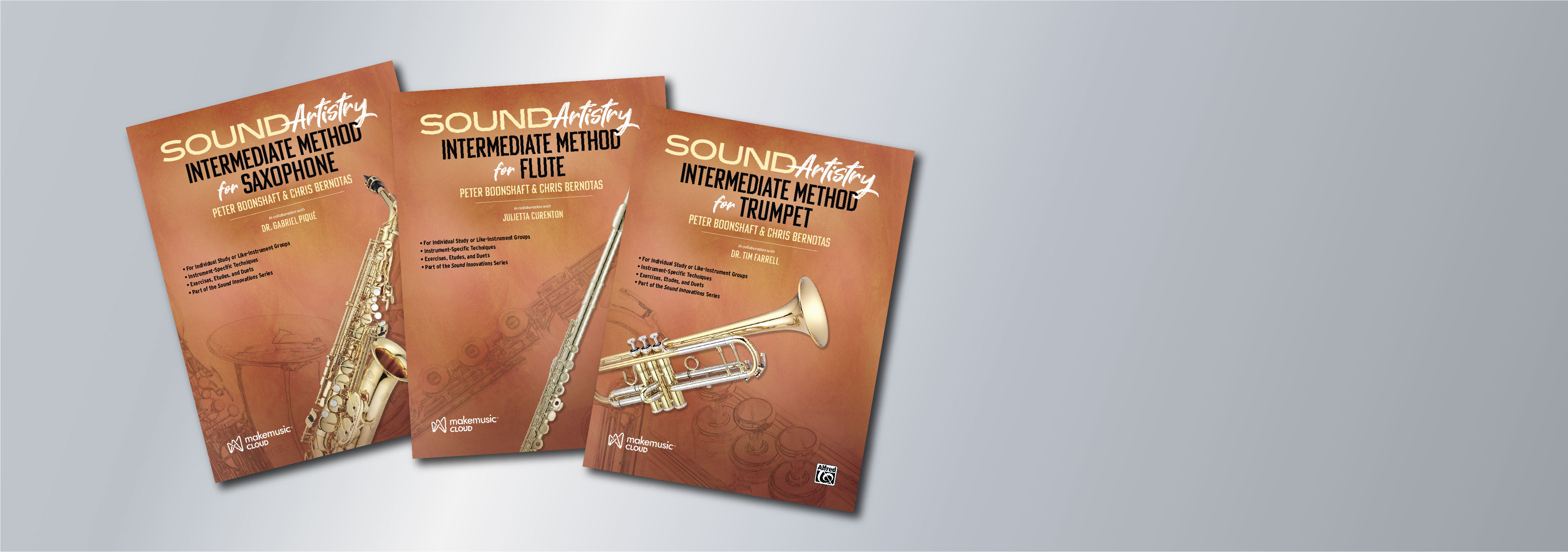
Elevate Your Musicality with Sound Artistry
Instrument-specific techniques for individual study or like-instrument groups: the modern method for bridging the gap to conservatory studies..

Need It Now? Buy It Now.
Select titles now available as pdfs for immediate purchase and download..
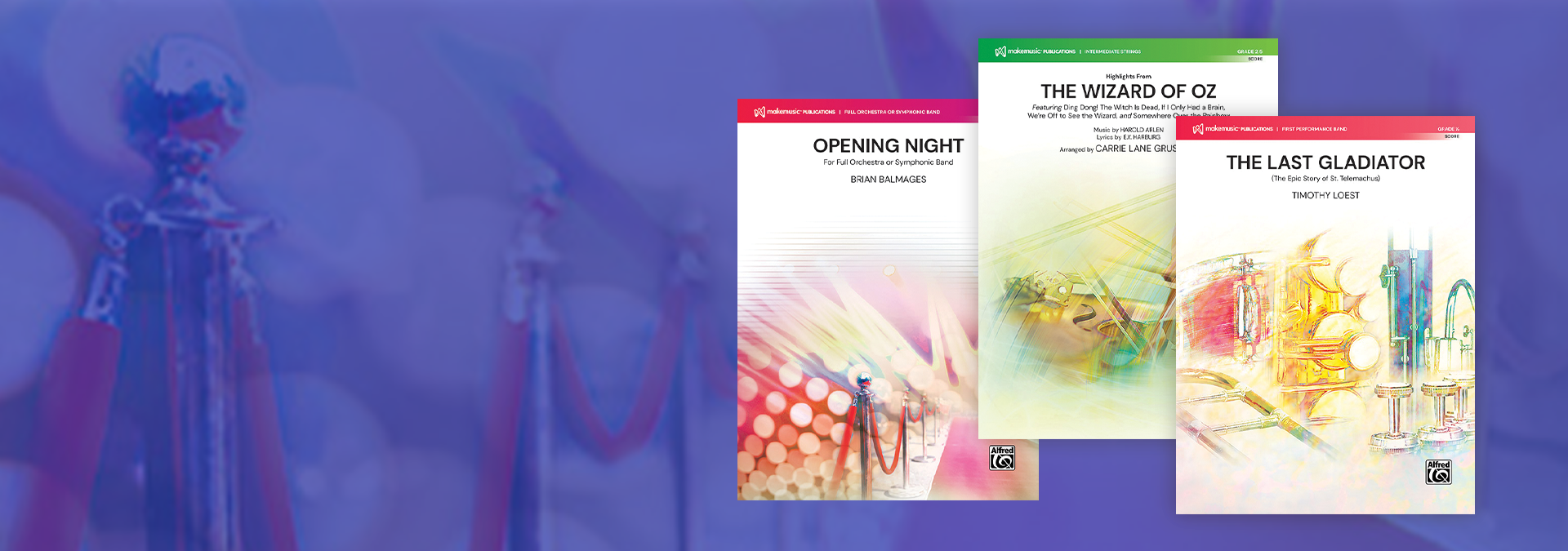
MakeMusic Publications
Introducing concert band and orchestra publications to power your passion..
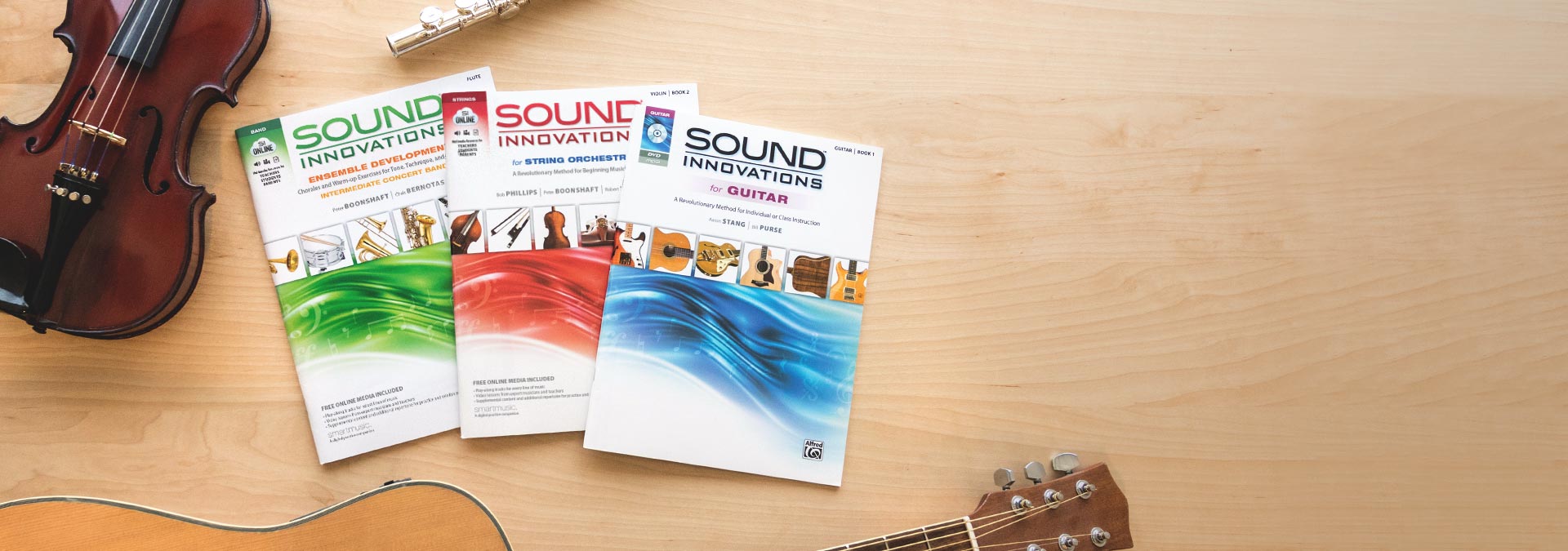
Sound Innovations
Comprehensive and flexible methods for concert band, orchestra, percussion, and guitar. Book 1 for both strings and concert band are now completely free in SmartMusic.

Teaching Solutions
Find solutions to your biggest challenges as a music teacher! Expert authors, editors, and educators are providing practical advice, information, and resources on a wide range of topics that can be applied both in and outside of lessons.

Join Us at an Alfred Music Event
Attend an Alfred Music event to meet, network, and learn from Alfred Music's top clinicians, authors, editors, and educators at conventions, clinics, workshops, reading sessions, in-services, and other events.
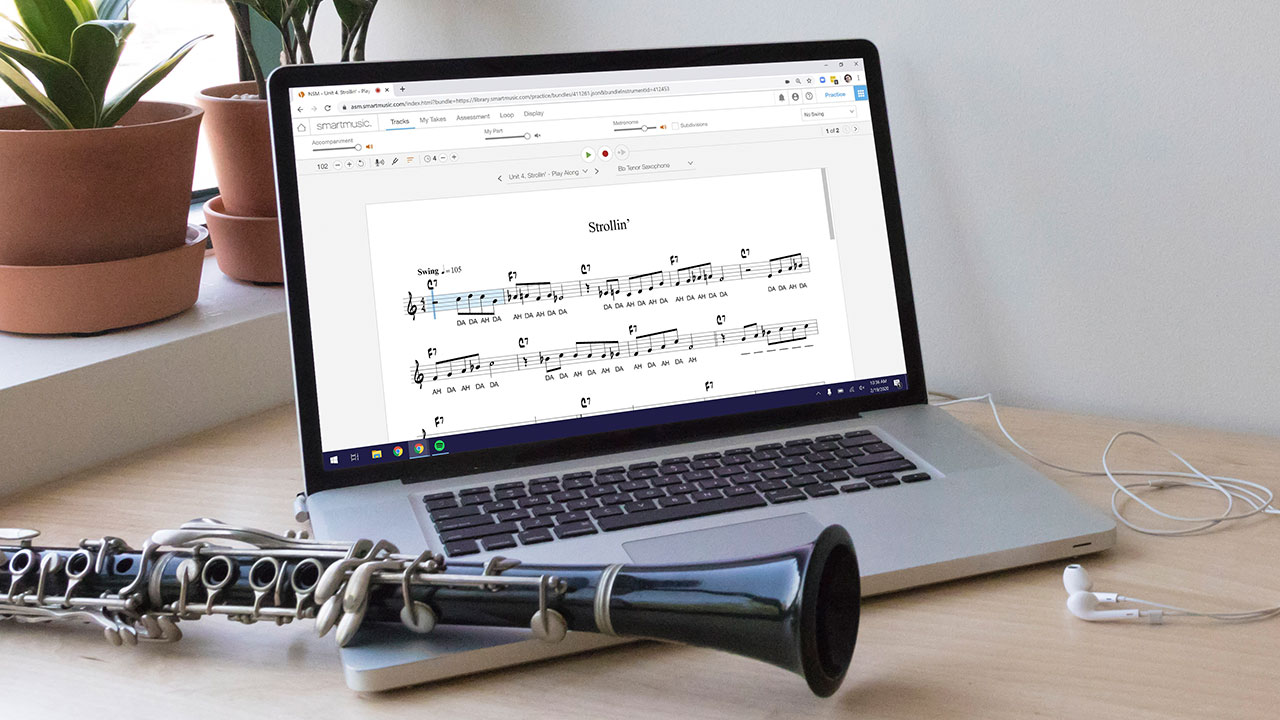
MakeMusic Cloud
Still the trusted way to connect teachers and students, MakeMusic Cloud (SmartMusic) is now in the cloud so it works with the devices your students have today. Browse hundreds of Alfred Music performance pieces and top method books available now.
Featured Methods
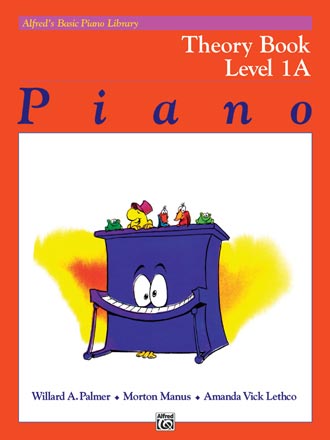
Alfred's Basic Piano Library
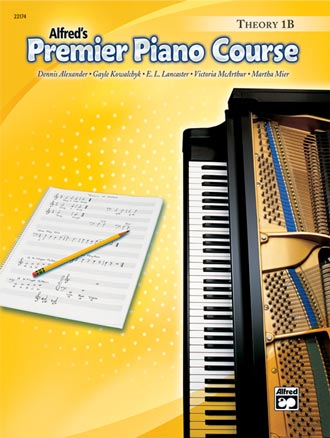
Premier Piano Course
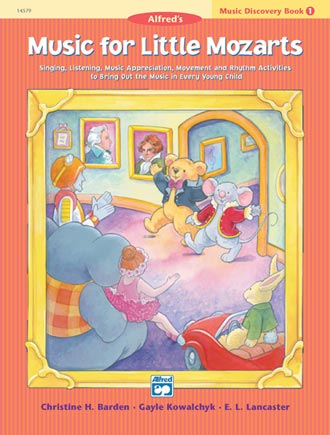
Music for Little Mozarts
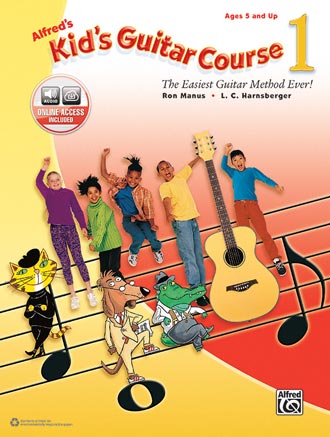
Kid's Guitar Course
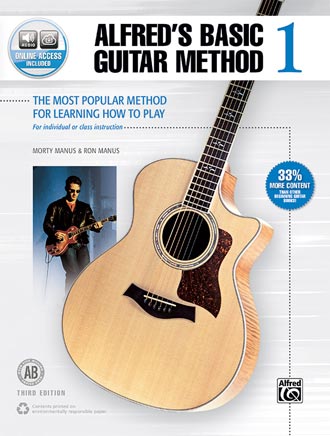
Alfred's Basic Guitar Library
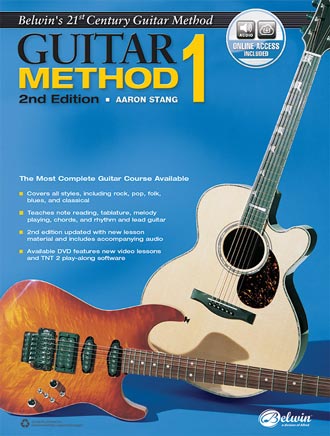
21st Century Guitar Method
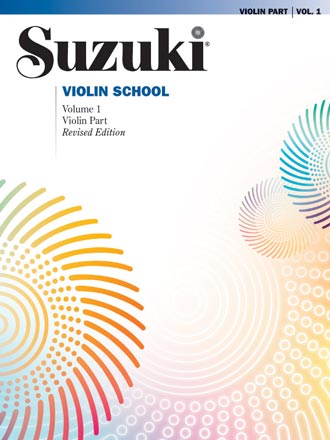
Suzuki Method
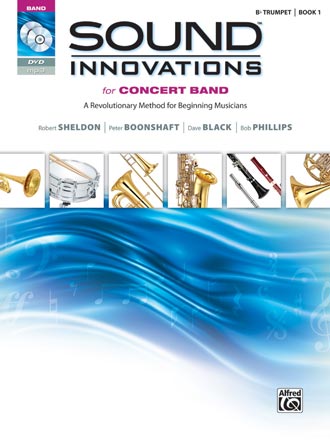
Accent on Achievement
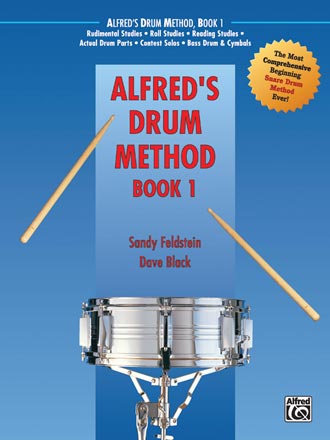
Alfred's Drum Method
Welcome to Alfred Music

Promoting the Importance of Music Education
Alfred Music continues to their efforts to support and promote the importance of music education!
Alfred Cares
The Alfred Cares initiative focuses on giving back and helping more people experience the joy of making music.

Join Our Community
Join a community of music enthusiasts with a passion for music education.
Join a community of music enthusiasts with a passion for music education
Stay Updated
Want to get the latest updates and special offers from Alfred Music?
Join Our Email List
Want to get the latest updates and special offices from Alfred Music?
Join our Mailing List

What this handout is about
This handout identifies common questions about drama, describes the elements of drama that are most often discussed in theater classes, provides a few strategies for planning and writing an effective drama paper, and identifies various resources for research in theater history and dramatic criticism. We’ll give special attention to writing about productions and performances of plays.
What is drama? And how do you write about it?
When we describe a situation or a person’s behavior as “dramatic,” we usually mean that it is intense, exciting (or excited), striking, or vivid. The works of drama that we study in a classroom share those elements. For example, if you are watching a play in a theatre, feelings of tension and anticipation often arise because you are wondering what will happen between the characters on stage. Will they shoot each other? Will they finally confess their undying love for one another? When you are reading a play, you may have similar questions. Will Oedipus figure out that he was the one who caused the plague by killing his father and sleeping with his mother? Will Hamlet successfully avenge his father’s murder?
For instructors in academic departments—whether their classes are about theatrical literature, theater history, performance studies, acting, or the technical aspects of a production—writing about drama often means explaining what makes the plays we watch or read so exciting. Of course, one particular production of a play may not be as exciting as it’s supposed to be. In fact, it may not be exciting at all. Writing about drama can also involve figuring out why and how a production went wrong.
What’s the difference between plays, productions, and performances?
Talking about plays, productions, and performances can be difficult, especially since there’s so much overlap in the uses of these terms. Although there are some exceptions, usually plays are what’s on the written page. A production of a play is a series of performances, each of which may have its own idiosyncratic features. For example, one production of Shakespeare’s Twelfth Night might set the play in 1940’s Manhattan, and another might set the play on an Alpaca farm in New Zealand. Furthermore, in a particular performance (say, Tuesday night) of that production, the actor playing Malvolio might get fed up with playing the role as an Alpaca herder, shout about the indignity of the whole thing, curse Shakespeare for ever writing the play, and stomp off the stage. See how that works?
Be aware that the above terms are sometimes used interchangeably—but the overlapping elements of each are often the most exciting things to talk about. For example, a series of particularly bad performances might distract from excellent production values: If the actor playing Falstaff repeatedly trips over a lance and falls off the stage, the audience may not notice the spectacular set design behind him. In the same way, a particularly dynamic and inventive script (play) may so bedazzle an audience that they never notice the inept lighting scheme.
A few analyzable elements of plays
Plays have many different elements or aspects, which means that you should have lots of different options for focusing your analysis. Playwrights—writers of plays—are called “wrights” because this word means “builder.” Just as shipwrights build ships, playwrights build plays. A playwright’s raw materials are words, but to create a successful play, they must also think about the performance—about what will be happening on stage with sets, sounds, actors, etc. To put it another way: the words of a play have their meanings within a larger context—the context of the production. When you watch or read a play, think about how all of the parts work (or could work) together.
For the play itself, some important contexts to consider are:
- The time period in which the play was written
- The playwright’s biography and their other writing
- Contemporaneous works of theater (plays written or produced by other artists at roughly the same time)
- The language of the play
Depending on your assignment, you may want to focus on one of these elements exclusively or compare and contrast two or more of them. Keep in mind that any one of these elements may be more than enough for a dissertation, let alone a short reaction paper. Also remember that in most cases, your assignment will ask you to provide some kind of analysis, not simply a plot summary—so don’t think that you can write a paper about A Doll’s House that simply describes the events leading up to Nora’s fateful decision.
Since a number of academic assignments ask you to pay attention to the language of the play and since it might be the most complicated thing to work with, it’s worth looking at a few of the ways you might be asked to deal with it in more detail.
There are countless ways that you can talk about how language works in a play, a production, or a particular performance. Given a choice, you should probably focus on words, phrases, lines, or scenes that really struck you, things that you still remember weeks after reading the play or seeing the performance. You’ll have a much easier time writing about a bit of language that you feel strongly about (love it or hate it).
That said, here are two common ways to talk about how language works in a play:
How characters are constructed by their language
If you have a strong impression of a character, especially if you haven’t seen that character depicted on stage, you probably remember one line or bit of dialogue that really captures who that character is. Playwrights often distinguish their characters with idiosyncratic or at least individualized manners of speaking. Take this example from Oscar Wilde’s The Importance of Being Earnest :
ALGERNON: Did you hear what I was playing, Lane? LANE: I didn’t think it polite to listen, sir. ALGERNON: I’m sorry for that, for your sake. I don’t play accurately—anyone can play accurately—but I play with wonderful expression. As far as the piano is concerned, sentiment is my forte. I keep science for Life. LANE: Yes, sir. ALGERNON: And, speaking of the science of Life, have you got the cucumber sandwiches cut for Lady Bracknell?
This early moment in the play contributes enormously to what the audience thinks about the aristocratic Algernon and his servant, Lane. If you were to talk about language in this scene, you could discuss Lane’s reserved replies: Are they funny? Do they indicate familiarity or sarcasm? How do you react to a servant who replies in that way? Or you could focus on Algernon’s witty responses. Does Algernon really care what Lane thinks? Is he talking more to hear himself? What does that say about how the audience is supposed to see Algernon? Algernon’s manner of speech is part of who his character is. If you are analyzing a particular performance, you might want to comment on the actor’s delivery of these lines: Was his vocal inflection appropriate? Did it show something about the character?
How language contributes to scene and mood
Ancient, medieval, and Renaissance plays often use verbal tricks and nuances to convey the setting and time of the play because performers during these periods didn’t have elaborate special-effects technology to create theatrical illusions. For example, most scenes from Shakespeare’s Macbeth take place at night. The play was originally performed in an open-air theatre in the bright and sunny afternoon. How did Shakespeare communicate the fact that it was night-time in the play? Mainly by starting scenes like this:
BANQUO: How goes the night, boy? FLEANCE: The moon is down; I have not heard the clock. BANQUO: And she goes down at twelve. FLEANCE: I take’t, ’tis later, sir. BANQUO: Hold, take my sword. There’s husbandry in heaven; Their candles are all out. Take thee that too. A heavy summons lies like lead upon me, And yet I would not sleep: merciful powers, Restrain in me the cursed thoughts that nature Gives way to in repose!
Enter MACBETH, and a Servant with a torch
Give me my sword. Who’s there?
Characters entering with torches is a pretty big clue, as is having a character say, “It’s night.” Later in the play, the question, “Who’s there?” recurs a number of times, establishing the illusion that the characters can’t see each other. The sense of encroaching darkness and the general mysteriousness of night contributes to a number of other themes and motifs in the play.
Productions and performances
Productions.
For productions as a whole, some important elements to consider are:
- Venue: How big is the theatre? Is this a professional or amateur acting company? What kind of resources do they have? How does this affect the show?
- Costumes: What is everyone wearing? Is it appropriate to the historical period? Modern? Trendy? Old-fashioned? Does it fit the character? What does their costume make you think about each character? How does this affect the show?
- Set design: What does the set look like? Does it try to create a sense of “realism”? Does it set the play in a particular historical period? What impressions does the set create? Does the set change, and if so, when and why? How does this affect the show?
- Lighting design: Are characters ever in the dark? Are there spotlights? Does light come through windows? From above? From below? Is any tinted or colored light projected? How does this affect the show?
- “Idea” or “concept”: Do the set and lighting designs seem to work together to produce a certain interpretation? Do costumes and other elements seem coordinated? How does this affect the show?
You’ve probably noticed that each of these ends with the question, “How does this affect the show?” That’s because you should be connecting every detail that you analyze back to this question. If a particularly weird costume (like King Henry in scuba gear) suggests something about the character (King Henry has gone off the deep end, literally and figuratively), then you can ask yourself, “Does this add or detract from the show?” (King Henry having an interest in aquatic mammals may not have been what Shakespeare had in mind.)
Performances
For individual performances, you can analyze all the items considered above in light of how they might have been different the night before. For example, some important elements to consider are:
- Individual acting performances: What did the actor playing the part bring to the performance? Was there anything particularly moving about the performance that night that surprised you, that you didn’t imagine from reading the play beforehand (if you did so)?
- Mishaps, flubs, and fire alarms: Did the actors mess up? Did the performance grind to a halt or did it continue?
- Audience reactions: Was there applause? At inappropriate points? Did someone fall asleep and snore loudly in the second act? Did anyone cry? Did anyone walk out in utter outrage?
Response papers
Instructors in drama classes often want to know what you really think. Sometimes they’ll give you very open-ended assignments, allowing you to choose your own topic; this freedom can have its advantages and disadvantages. On the one hand, you may find it easier to express yourself without the pressure of specific guidelines or restrictions. On the other hand, it can be challenging to decide what to write about. The elements and topics listed above may provide you with a jumping-off point for more open-ended assignments. Once you’ve identified a possible area of interest, you can ask yourself questions to further develop your ideas about it and decide whether it might make for a good paper topic. For example, if you were especially interested in the lighting, how did the lighting make you feel? Nervous? Bored? Distracted? It’s usually a good idea to be as specific as possible. You’ll have a much more difficult time if you start out writing about “imagery” or “language” in a play than if you start by writing about that ridiculous face Helena made when she found out Lysander didn’t love her anymore.
If you’re really having trouble getting started, here’s a three point plan for responding to a piece of theater—say, a performance you recently observed:
- Make a list of five or six specific words, images, or moments that caught your attention while you were sitting in your seat.
- Answer one of the following questions: Did any of the words, images, or moments you listed contribute to your enjoyment or loathing of the play? Did any of them seem to add to or detract from any overall theme that the play may have had? Did any of them make you think of something completely different and wholly irrelevant to the play? If so, what connection might there be?
- Write a few sentences about how each of the items you picked out for the second question affected you and/or the play.
This list of ideas can help you begin to develop an analysis of the performance and your own reactions to it.
If you need to do research in the specialized field of performance studies (a branch of communication studies) or want to focus especially closely on poetic or powerful language in a play, see our handout on communication studies and handout on poetry explications . For additional tips on writing about plays as a form of literature, see our handout on writing about fiction .
Works consulted
We consulted these works while writing this handout. This is not a comprehensive list of resources on the handout’s topic, and we encourage you to do your own research to find additional publications. Please do not use this list as a model for the format of your own reference list, as it may not match the citation style you are using. For guidance on formatting citations, please see the UNC Libraries citation tutorial . We revise these tips periodically and welcome feedback.
Carter, Paul. 1994. The Backstage Handbook: An Illustrated Almanac of Technical Information , 3rd ed. Shelter Island, NY: Broadway Press.
Vandermeer, Philip. 2021. “A to Z Databases: Dramatic Art.” Subject Research Guides, University of North Carolina. Last updated March 3, 2021. https://guides.lib.unc.edu/az.php?a=d&s=1113 .
Worthen, William B. 2010. The Wadsworth Anthology of Drama , 6th ed. Boston: Cengage.
You may reproduce it for non-commercial use if you use the entire handout and attribute the source: The Writing Center, University of North Carolina at Chapel Hill
Make a Gift
- Admission Essay
- Statement of Purpose Editing
- Personal Statement Editing
- Recommendation Letter
- Motivation Letter
- Cover Letter
- Supplemental Essay
- Letter of Continued Interest
- Scholarship Essay
- Role Model Essay
- Our Editors
- College Admission Essay Examples
- College Cover Letter Examples
- College Personal Statement Examples
- Graduate Personal Statement Examples
- Graduate Statement of Purpose Examples
- MBA Essay Examples
- MBA Personal Statement Examples
- MBA Resume Examples
- MBA Recommendation Letter Examples
- Medical School Personal Statement Examples
- Medical School Recommendation Letter Examples
- Pricing Plans
- Public Health
- Dissertation
- Research Paper
- Thesis Editing
- Academic Editing
- Motivation letter
- Letter of Recommendation
- Personal Statement
- Statement of Purpose
Dramatic Essay Sample To Borrow Some Writing Techniques
EssayEdge > Blog > Dramatic Essay Sample To Borrow Some Writing Techniques
The essay sample below showcases techniques you may want to use in your own essay. Pay attention to how the author builds tension throughout this college essay about cancer. How does the author transition between paragraphs? How does the author use detail to show the reader the story rather than tell the story? Keep these kinds of points in mind while you study the essay sample below. You can also look through other dramatic statement examples posted on our blog.
Dramatic Appeal – Essay Sample
When I walked through my front door, the first thing I noticed was the odor. After the odor, I heard the groaning. I remember the occasion quite vividly, although it was ten or eleven years ago. My sister and I had just returned from the park with a neighbor, expecting everything to be normal. But soon I discovered that I would never be quite the same again—I was about to witness a scene, which shaped my life thereafter.
As we slowly inched into the living room, a staggering sight met our eyes. There, lying face down on a couch, was my father, ashen-faced and trembling. His head was completely bald, and his grisly figure appeared enervated. He was gasping for air, and then suddenly, he grabbed a blue pan, plunged his face into it, and vomited with such vehemence that it really shook me. Only then did I fully understand what it meant for my dad to have cancer. Before that afternoon, I used to think words like “cancer”, “tumor”, and “chemotherapy” described a simple disease that doctors knew how to treat like any other. And at seven years old, I had no reason to think any differently, for my father had simply told me that he might be “sick.” But that first day when I saw the trauma his affliction caused him, I immediately realized that colon cancer was neither quick nor painless, but agonizing and disturbing. My father finally raised his head from the blue pan and uttered a weak “Hello,” only to vomit again. My neighbor noticed the shock I was feeling, and put his hand on my shoulder. “Let’s go to my house, Jeff,” he recommended, “Let your dad rest—he has been fighting brave and hard.”
My dad, my hero. The source of my love and guidance was now battling for his life. After the doctors detected the colon cancer in 1987, the illness became more and more malignant, and the effects on my family were more and more severe. The long series of debilitating surgeries and chemotherapy treatments consumed my father’s life, and by extension, enveloped my entire family. My mom had to spend most of her time and energy, not to mention large amounts of money, to take care of my father’s health. As a result, my mother had to set aside the needs of her two growing children, my sister and myself.
Need help? Check out EssayEdge editing services:
My depreciated self-esteem also adversely affected my performance in school. Ridiculed by my classmates into believing I was unworthy of merit, I ceased to believe I could excel as a student. My bad grades, in turn, lowered my confidence even further, for my dad had always stressed academics quite heavily—but after seeing my grades, I felt like I had failed my father. Furthermore, with my parents too preoccupied to foster my curiosity in activities outside of school, I missed the opportunity to discover my love for the piano at a young age. While others around me already played instruments, attended art lessons or played sports, I simply felt helpless to change my predicament. I was doomed to be a “late starter.” Often, I would simply say to myself, “I can’t take this any longer. I don’t have the patience or the spirit for this—I just don’t know what to do anymore.”
Then I figured out how I could change my life. At the point when I felt like giving up for good and resignedly accepting my fate, I remembered my father. I recalled with perfect clarity the day when I had witnessed him atrophying away before my eyes, vomiting into a pan. And then my neighbor had said to me, “Let your dad rest—he’s been fighting brave and hard.”
I saw the truth in this statement. My dad fought and struggled to survive his disease, and never once did he give in, because if he had, he probably would have lost his life. But by enduring the suffering so that he could live another day to see his family, he taught me to steadfastly hold on to life. He taught me not to give up. When I realized that by following his example I could surmount any obstacles, I made up my mind. I would face the world “brave and hard,” and I would cast off the anxiety, which constrained my personality from growing. I would work to improve my grades and shine as a student. I would harvest my talents with an active passion. No more delays. No more fear. No more shame, and most importantly, no more giving up.
After this revelation I made as a middle school student, I worked persistently to catch up and surpass my peers, and I have accomplished a lot of my goals. Since the sixth grade, my marks in school have progressed steadily upward. Particularly these past few years in high school, I’ve been proud of my exceptionally high marks. Additionally, I turned my eager determination to mastering the piano, and to this day I continue to cultivate my love for the instrument. I competed with musicians who had been playing since very young ages, when piano is best undertaken, but I remained resolute. With the strength my dad had taught me to apply to life, I pushed myself; I practiced and practiced, despite the increasing demands of my high school curriculum. Finally, I found myself actually skipping levels in the Certificate of Merit exam, and catching up with—if not exceeding—others of my age and older. In March of 2001, I am going to take a “level 9,” which I reached in half the time most students take.
But more than any other achievement I pushed myself toward, I am proud of my ability to overcome my shyness. In eighth grade, I made the decision to join an Asian youth leadership program, which would compel me to communicate frequently with my peers. Furthermore, I knew my role as a mentor and community leader would teach me to speak clearly and confidently. My project has worked wonders. Now I feel at ease among classmates and friends, and last year, I even hosted an open house event for the program, speaking comfortably in front of a very large audience.
I am very proud of my ability to fulfill my true potential in life and I owe all my strength to my father, my reason for living. My dad has been at my side every step of the way. Even as a bedridden cancer patient, sick from chemotherapy, his example has taught me to face adversity and conquer it, no matter what the nature of the challenge. I will never forget his deep discomfort and agony, but the dignity with which he faced his suffering is equally memorable. His struggle with colon cancer became a model for my own struggle to improve myself. Even today I continue to fight, struggling with college entrance tests like the SAT. But I continue unshaken, knowing that the truest test of my ability is my determination to live bravely like my father and overcome the hardships of life. I can never thank my dad enough for what he has given me. He has become my role model, and as I face the future I can hear him say to me, “I’m proud of you son . . . you’ve been fighting brave and hard.”
P.S. We hope that this dramatic essay example was helpful for you. Otherwise, you can ask our editors for professional advice.
A little drama never hurts. Quite the opposite, when you add it to your application essay and use proper writing techniques, you can count on earning a seat. You don’t need to have exceptional writing experience to succeed — university essay editors from EssayEdge can give you a piece of professional advice.
Popular Posts
April 8, 2024 How To Start a Scholarship Essay: Catch Reader’s Attention Fast
April 8, 2024 My Role Model Essay: A Few Ways to Elaborate on The Subject
April 8, 2024 How To Start a Personal Statement? | Writing Tips and Samples
Related Posts
April 8, 2024 Personal Statement Sample: How Can It Help You With Writing?
April 8, 2024 Clichés in College Essay Examples: How To Recognize Them?
April 8, 2024 Alternative Medicine Application Essay Sample – Edited
©2024 Student Media LLC. All rights reserved.
EssayEdge: Essay Editing & Proofreading Service.
Our mission is to prepare you for academic and career success.
- Log In
- Sign Up
- Forgot password
Unable to log in? Please clear your browser's cache and then refresh this page and try again
Reset password Please enter your email address to request a password reset.

Check your email We’ve just sent a password reset link to your email.
This information is used to create your account

IMAGES
VIDEO
COMMENTS
This remarkably simple, yet sophisticated sounding piece from Mark Williams allows for the development of many expressive possibilities in young players. Syn...
Dramatic Essay. Mark Williams - Alfred Music Publishing. This remarkably simple, yet sophisticated sounding piece from Mark Williams allows for the development of many expressive possibilities in young players. Syncopation and spicatto are explored and developed in a context of changing moods. This is a must-do for second or third year ensembles.
Download and print in PDF or MIDI free sheet music of Dramatic Essay - Mark Williams for Dramatic Essay by Mark Williams arranged by Hyper_Violinist for Contrabass, Violin, Viola, Cello (String Quintet)
About Press Copyright Contact us Creators Advertise Developers Terms Privacy Policy & Safety How YouTube works Test new features NFL Sunday Ticket Press Copyright ...
Dramatic Essay: String Orchestra Conductor Score & Parts: $46.00 View: Share. Product Details. Description. This remarkably simple, yet sophisticated sounding piece from Mark Williams allows for the development of many expressive possibilities in young players. Syncopation and spicatto are explored and developed in a context of changing moods.
Dramatic Essay, a dramatic dialogue between the trumpet soloist and band, was composed on commission by the educational services department of the C.G. Conn Corporation and written especially for Don Jacoby, their clinician and trumpet soloist. Don "Jake" Jacoby was a noted recording artist, trumpet teacher, bandleader and author who played ...
Santa Monica High School Combined String and Concert OrchestrasJason Aiello, ConductorBarnum HallDecember 9, 2014
Dramatic Essay (1958) For Trumpet and Band (Wind Ensemble) By Clifton Williams Biographical Info. James Clifton Williams Jr. (1923- 12 February 1976) was born in Traskwood, Arkansas. He began playing French horn, piano, and mellophone early on and played in the band at Little Rock High School. In his senior class of 600, he was voted for ...
Dramatic Essay. Mark Williams Alfred Music Publishing. 2301596E Easy. This remarkably simple, yet sophisticated sounding piece from Mark Williams allows for the development of many expressive possibilities in young players. Syncopation and spicatto are explored and developed... view details. String Orchestra $49.30.
Dramatic Essay Clifton Williams - LudwigMasters Publications. Dramatic Essay Clifton Williams - LudwigMasters Publications. Select a Product. Preview. My Library. Description. Number. Level. Price. Qty. Currently Viewing Band Set & Score #2391274 UPC: 746241274106 Publisher ID: B372002. 2391274 $65.00
Dramatic Essay By Mark Williams String Orchestra. Interactive Details. Dramatic Essay; Also available in digital. Dramatic Essay By Mark Williams. Features. Print. Music and instrument info. Difficulty Easy Category String Orchestra Genre Concert and Contest Instruments Piano, Violin, Viola, Cello, Contrabass.
Viola. , Cello. Share, download and print free sheet music of Dramatic Essay Mark Williams for piano, guitar, flute and more with the world's largest community of sheet music creators, composers, performers, music teachers, students, beginners, artists and other musicians with over 1,000,000 sheet digital music to play, practice, learn and enjoy.
Dramatic Essay by Mark Williams, All 5 Parts
Dramatic Essay By Mark Williams String Orchestra Conductor Score Grade: 1 Item: 00-11773S. $8.00 Add to Cart Add to List. Get FREE shipping when you spend $75.00 or more! Now offering express checkout with PayPal Related Items. Description: Digital Download Download: Price : Dramatic Essay: String Orchestra Conductor Score & Parts ...
Dramatic Opening Sentences: 25+ Examples and Ideas. June 21, 2018. Admin. by Michael Lydon. It is a truth universally acknowledged, that a single man in possession of a good fortune, must be in want of a wife. -Jane Austen, Pride and Prejudice. "Tom!".
Dramatic Essay: String Orchestra Conductor Score & Parts: $46.00 View: Dramatic Essay: String Orchestra Conductor Score: $8.00 View: Product Details. Description. This remarkably simple, yet sophisticated sounding piece from Mark Williams allows for the development of many expressive possibilities in young players. ...
When to Use Drama. Drama is great for a creative writing project. It offers opportunities to work on character development, story structure, and a whole other set of writing skills. Every once in a while, you may also find a place for drama in formal essays, but you have to be careful. For example, history essays are often more enjoyable to ...
Doctor Faustus as a Tragic Hero Essay. Therefore, the tragic hero character is manifested at the end of the play where Faustus pleads with God to forgive him and liberate him from the hand of the devil. Misery - Anton Chekhov. Analysis of Summary and Themes.
Dramatic Essay: 1st Violin. PDF Download By Mark Williams 1st Violin Part Grade: 1 Item: 00-PC-0000024_VN1. $5.99. Add PDF to Cart View Full Set. Now offering express checkout with PayPal. Description. Price. Dramatic Essay: String Orchestra Conductor Score & Parts. $46.00.
This handout identifies common questions about drama, describes the elements of drama that are most often discussed in theater classes, provides a few strategies for planning and writing an effective drama paper, and identifies various resources for research in theater history and dramatic criticism. We'll give special attention to writing ...
Dramatic Essay by Mark Williams, 1st Violin part
Dramatic Appeal - Essay Sample. When I walked through my front door, the first thing I noticed was the odor. After the odor, I heard the groaning. I remember the occasion quite vividly, although it was ten or eleven years ago. My sister and I had just returned from the park with a neighbor, expecting everything to be normal.
Dramatic Essay for Solo Trumpet and Band (1958) by J. Clifton WilliamsTrumpet: Matthew ShefcikConductor: Seth CarlsonThe Miami Sousa BandPerformed and Record...